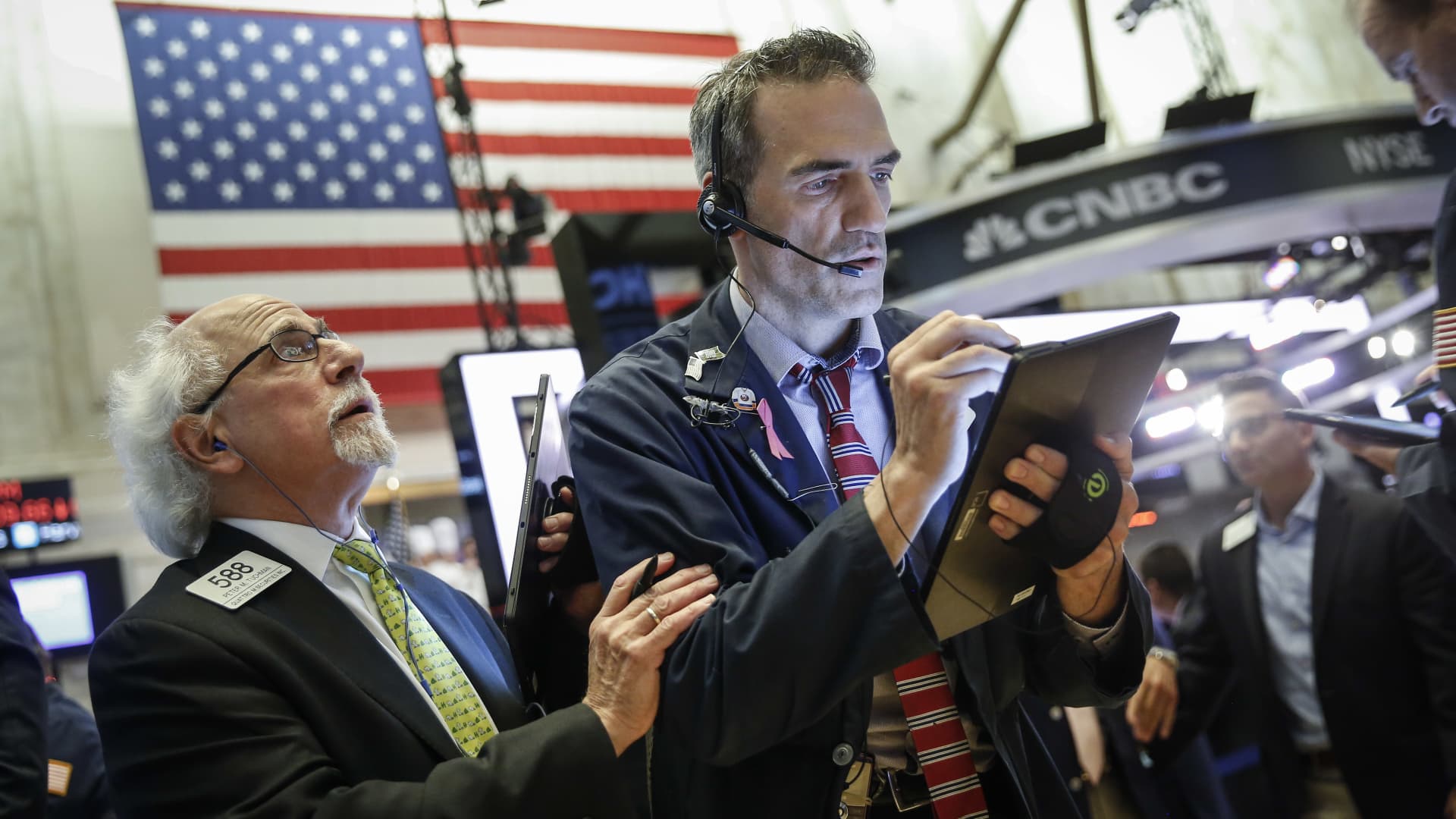
Stocks fell on Wednesday as traders looked to end a losing year and prepare for 2023.
The Dow Jones Industrial Average lost 150 points, or 0.5%. The S&P 500 and Nasdaq Composite fell 0.6% and 0.8%, respectively.
Energy was the biggest slowdown in the S&P 500 as oil prices fell. Marathon Oil and EQT were among the notable losers in the index. Southwest Airlines, meanwhile, continued its downward spiral as it continued to cancel flights amid severe winter weather. Shares fell about 2%.
“Stocks finally fell back into the green in unison, but they just didn’t hold,” said Louis Navellier, founder and chief investment officer of growth investing firm Navellier & Associates. “On low volume, the market is trying its best to keep its head above water after a disappointing start to the official Santa Claus rally. It’s a bit of a bounce back to the middle as the hardest-hit sectors see some bottom fishing.”
“The market seems to be exhausted, which is understandable, and you are no longer expecting a big technical rally and just hoping to get to Friday afternoon without any more meaningful losses,” Navillier added. “Most of the major uncertainties for this year; China Covid, the war in Ukraine, limited energy supplies, and hawkish central banks, will await us on the other side.”
Heading into its final trading week, the stock market is on track for its worst year since 2008. The Nasdaq has been the worst performer of the three, losing 33.8% this year as investors exit growth stocks amid fears of a growing recession. The Dow and S&P 500 are on track to lose 8.5% and 19.7%, respectively.
Economic data released Wednesday included pending home sales, which fell 4.0% in November on a monthly basis, according to the National Association of Realtors. The drop came as rising mortgage rates left potential buyers feeling the cold. Economists polled by Dow Jones had expected a decline of 1.8%.
“There are clear signs that the economy is slowing, as evidenced today by the drop in pending home sales to the second lowest level on record,” said Brian Levitt, global market analyst at Invesco. “Home sales have historically been a good driver of economic activity as the sale of a new home supports many industries. Meanwhile prices continue to rise as the Fed continues to signal a hawkish stance. In short, investors are hopeful for the proverbial soft landing But challenges remain.”
Tuesday marked the beginning of an abbreviated trading week over the holiday. The Dow Jones rose 37.63 points, or 0.11%, to close at 33,241.56 points. The S&P 500 fell 0.40%.




More Stories
JPMorgan expects the Fed to cut its benchmark interest rate by 100 basis points this year
Shares of AI chip giant Nvidia fall despite record $30 billion in sales
Nasdaq falls as investors await Nvidia earnings